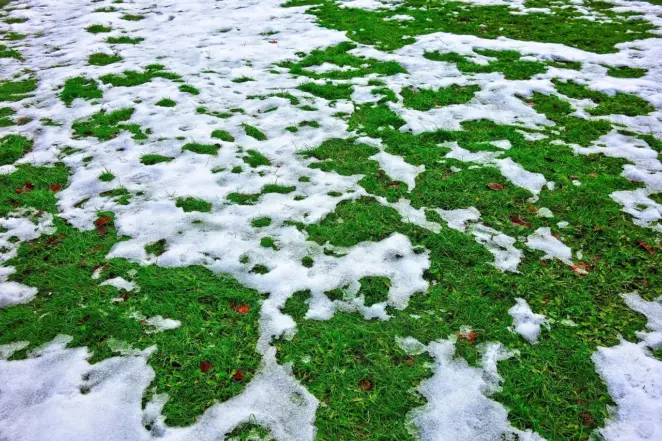Can you lay turf in Winter?
For roughly half the year, this is one of our most frequently asked questions by our customers - especially from newcomers to turfing.
The short answer is yes, you can lay a turf at pretty much any time of the year including winter.
The longer answer is a bit more nuanced, you need to give a little bit of thought to turfing in the colder weather just as you would in the hotter months.
Laying Turf in Winter
For detailed advice on how to lay turf, you can follow our step-by-step guide. Regardless of the season, the technique for laying turf stays the same but there are some things to consider if you’re laying in the wintertime.
You should not attempt to lay a lawn if there is snow on the ground.It's worth checking at the forecast ahead of time to make sure no extreme cold weather is expected at the time you are planning on actually doing the work.
During the summer months we recommend laying turf as fast as possible, ideally on the day of delivery during hotter times. In winter, you have more leeway. Although the recommendation to lay the lawn as quickly as possible still stands, in cold weather grass becomes dormant so having a short delay won't cause deterioration as quickly as it would in summer.
Turf Laying: Summer vs Winter

The process of laying turf is much the same as in the summer but your timelines are extended. Winter turfing is less labour intensive in terms of watering but it does require more patience for the turf to establish
- Turf that is dormant due to the cold weather will be much slower rooting to ground so it'll be longer before it is ready to walk on.
- In hot summer weather watering is crucial, in winter you may still have to water the lawn in a dry spell but you'll be much less likely to face issues with it drying out.
- The lawn will most likely not be ready to mow for several weeks as opposed to 10 - 14 days at the height of the growing season.
Choosing the right turf is imperative when it comes to winter turf laying- you want a hard-wearing, versatile turf that will survive the winter months.
Our Rye Gold Turf is our customer’s top choice for purchasing turf in winter, as it’s our most durable, hard-wearing and aesthetically pleasing turf. The high percentage of Rye grass in the seed mix makes for finer looking blades and a stable rooting system, allowing the turf to withstand heavy foot traffic and less than ideal conditions, such as colder climates and slightly more shaded areas.

An Online Turf customer’s garden in winter before remodeling

Garden after clearance of existing weeds and debris

Rye Gold being unrolled and laid in winter

Online Turf Customer’s winter garden transformation using Rye Gold Turf.
If possible, try to turf areas that catch the winter sunlight.
As a natural living product, turf needs sunlight to live. Especially during the winter, turf needs to be receiving as much sunlight as possible to be able to survive and thrive. The shorter winter days reduce the hours of sun your new lawn will get and, if totally starved of light, it can give moss a chance to grow.
When ordering turf during the winter, bear in mind that it is an agricultural product that is grown in a field. So the winter weather you are experiencing will have been the same climate your turf has been grown in. For instance, it's possible the rolls will slightly heavier than they would be in the summer because of the extra rainfall in winter.


Aftercare
Once your turf has been laid, it’s important that you provide it with the correct aftercare for the colder, winter weather.
As mentioned earlier, your turf may take longer to establish in winter because the plants grow more slowly, so be aware that you may have to wait a bit longer before you can use your new lawn.
You should water your turf adequately for the first few days to help it root in and not dry out, especially in dry periods. If there has been a lot of rainfall, you will not need to water your turf as heavily during the rooting in period.
If you are interested in laying turf this winter, check out our range of turf products.
Want to know more about caring for your lawn in the winter? Check out our handy Winter Lawn Care Guide.

